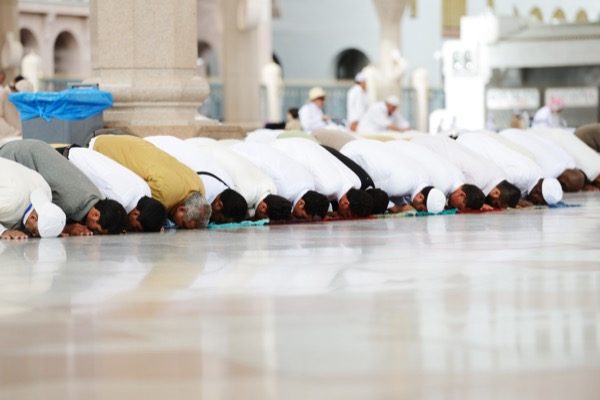
God Almighty has taught such an excellent method of prayer in the Surah al-Fatihah than which nothing better is possible and which comprises all those matters which are necessary for inspiring the heart with eagerness in prayer. For the acceptance of prayer; it is necessary that there should be eagerness in it for the prayer that lacks eagerness is mere words and is not true prayer. It is obvious, however, that it is not the choice of a person that his prayer should be inspired by eagerness at all times. It is necessary that at the time of prayer the matters that inspire eagerness should be present in the mind of the supplicant. Every sensible person knows that the heart is inspired with eagerness in consequence of two feelings. First, that the worshipper should contemplate God as Perfect and Powerful and possessing all perfect attributes, and to consider His mercies and His benevolence as essential from the beginning to the end for his own existence and preservation, and to consider Him as the Fountainhead of all grace. Secondly, to consider himself and all his fellow beings helpless and poor and dependent upon God’s help.
These are two matters that inspire eagerness in prayer. Eagerness is inspired when the supplicant finds himself altogether weak and without strength and dependent upon divine help, and believes firmly that God is All-Powerful and Lord of the worlds and Gracious and Merciful and Master of Judgement and that the fulfilment of all human needs lies in His hands. The Surah al-Fatihah sets out in the very beginning that God is the Being Who is worthy of all praise and comprises all excellencies and is the Lord of the worlds and is the Fountainhead of all mercies and bestows upon everyone the reward of their actions. By setting out these attributes, God Almighty has proclaimed that all power is in His hands and that all grace proceeds from Him. He has proclaimed His greatness to the degree that He is the fulfiller of all needs in this world and the hereafter, that He is the Cause of all causes and that He is the Source of all grace. He has also indicated that without Him and His mercy the life and comfort and ease of an animate is not possible. Then the supplicant has been taught humility in the words:
إِيَّاكَ نَعۡبُدُ وَإِيَّاكَ نَسۡتَعِينُ
[1]
This means: O the Source of all bounties! We worship Thee alone, and seek help from Thee alone.
That is, we are helpless and can achieve nothing ourselves unless we are bestowed strength and support by Thee. Thus, God Almighty has set forth two matters that inspire eagerness in prayer; one, His greatness and mercy and the other the helplessness and humility of His servants. These are two matters which it is necessary for supplicants to keep in their minds at the time of prayer. Thus those who have some experience of prayer know that without the presence of these two inspirers of prayers there can be no prayer, and that without these the fire of the love of God does not raise its flames in prayer. It is obvious that a person who does not keep in mind the greatness and mercy and perfect power of God cannot turn to God, and that the soul of a person who does not acknowledge his own helplessness and poverty cannot incline towards the Benevolent Master. This is a verity which needs no deep philosophy for its appreciation. When the greatness of God and one’s own humility and helplessness are truly reflected in the heart, that condition itself instructs the worshipper that that is the means of offering true prayer.
Hazrat Mirza Ghulam Ahmad (as), The Essence of Islam – Volume II (Tilford, Surrey: Islam International Publications Ltd., 2004), 229-231.
[1] The Holy Qur’an, 1:5.




Add Comment